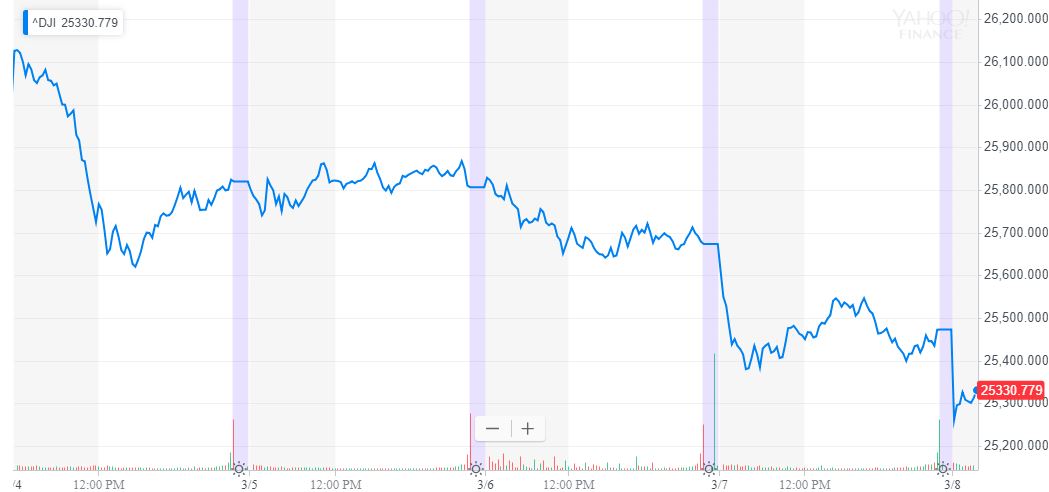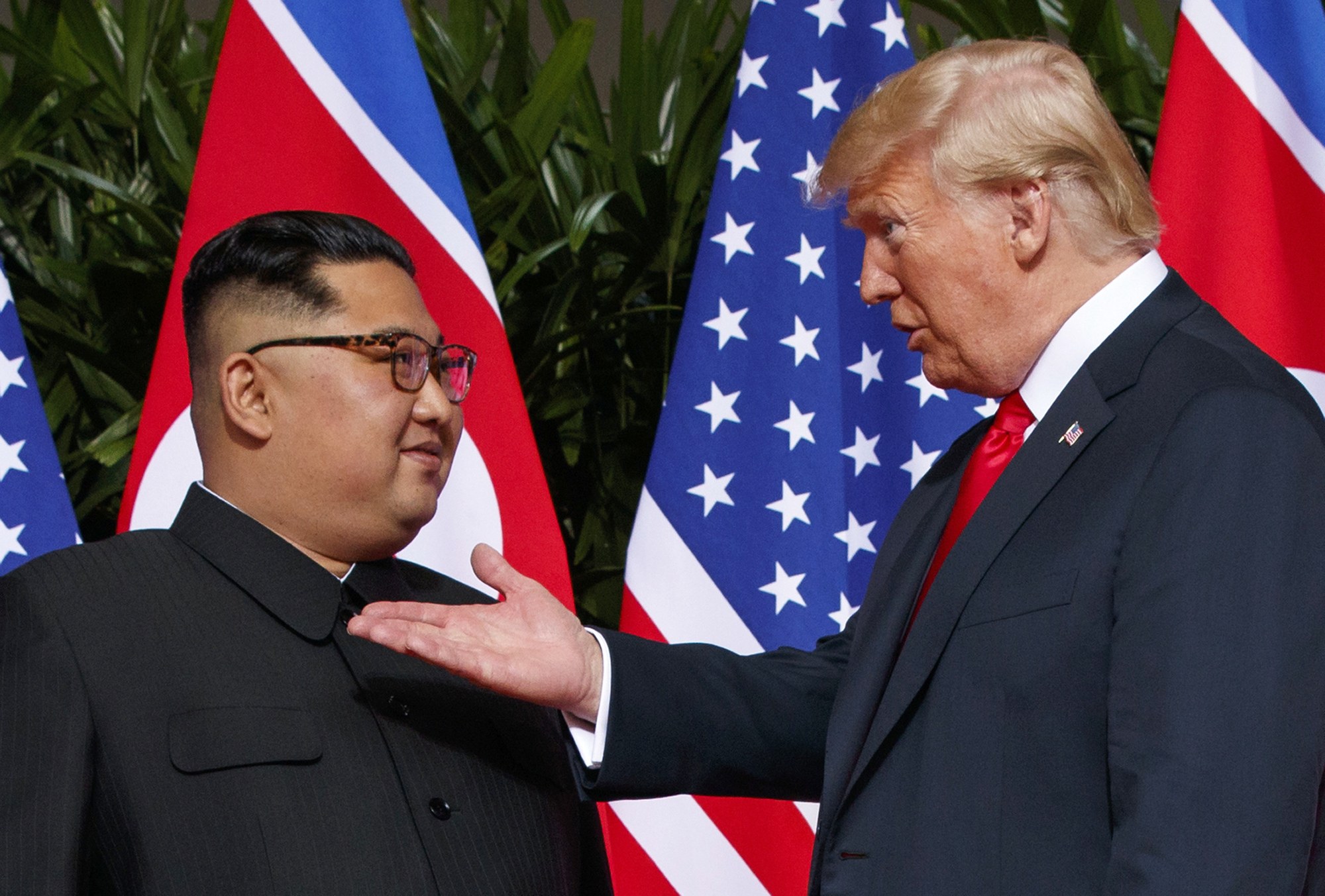Dow Tanks as Ominous Trade War Signals Pummel Stock Market

The Dow struggled to stop its weeklong bloodbath after the NYT exposed Donald Trump as a #BillionDollarLoser and trade tensions inspired stock market panic. | Source: AFP PHOTO / Brendan SMIALOWSKI
The opening bell has barely had time to stop ringing, but the Dow is already well on its way to its fifth consecutive losing session as the US stock market reels from a flurry of ominous reports that suggest the US and China are further from a trade deal than Trump administration officials had claimed.
Dow Plunges Again, on Track for 5th Straight Loss
As of 10:09 am ET, the Dow Jones Industrial Average had lost 176.34 points or 0.69 percent. Dow futures had plunged as far as 200 points in the early-morning session. The Nasdaq declined by 1.02 percent, while S&P 500 dropped by 0.84 percent as the US stock market endured another major setback.

On Thursday, the bears beat the Dow down by 200.23 points or 0.78 percent. The index closed at 25,473.23 to post its fourth consecutive loss. S&P 500 and Nasdaq losses were even more pronounced, with the former dropping by 0.81 percent to 2,748.93 and the latter plunging 1.13 percent to 7,421.16 and closing below 7,500 for the first time since Feb. 21.
The Dow’s triple-digit Friday morning sell-off followed a $345 billion Chinese stock market crash, which itself was predicated on weakening domestic economic data and heightened fears of an impending global recession.
However, that’s not the only factor emboldening Wall Street’s bears, as a volley of media reports suggest that optimism over the state of the US-China trade war has exceeded the actual state of the negotiations themselves.
US-China Trade Deal Not Imminent, Trump-Xi Summit Postponed

The Financial Times threw the state of trade deal negotiations into question when it revealed that the highly-touted summit between US President Donald Trump and Chinese President Xi Jinping had been delayed.
Xi had tentatively planned to meet with Trump at Mar-a-Lago on March 27 or 28, a summit that both sides expected would end with a signing ceremony and a new US-China trade deal.
The Wall Street Journal confirmed that claim, directly citing a US envoy who said that the two economic superpowers do not feel that they are “very close” to a formal trade agreement and will not plan a Trump-Xi summit until they do.
“A date hasn’t been finalized,” Terry Branstad, US envoy to Beijing, told the publication. “Both sides agree that there has to be significant progress, meaning a feeling that they’re very close before that happens,” he continued. “We’re not there yet. But we’re closer than we’ve been for a very long time.”
China ‘Spooked’ by Trump’s Behavior in Hanoi, Backs Huawei
The Wall Street Journal report followed a New York Times bombshell , dropped late Thursday night, which alleged that the Chinese government is much less eager to sign a trade deal than earlier reports had indicated.
“The work team is still continuing to negotiate because we still have a lot to do,” Commerce Minister Zhong Shan reportedly said on the sidelines of the 11-day annual session of the National People’s Congress.
Jake Parker, from the Beijing-based US-China Business Council, further told the Financial Times that Trump’s behavior during his February summit with North Korean leader Kim Jong Un had “just totally spooked” the Chinese, making them wary of sending Xi to negotiate on Trump’s home turf.

Adding more fuel to the fire, China’s foreign minister publicly praised domestic telecom giant Huawei for daring to sue the US government over a high-profile ban on purchases of Huawei equipment.
“We support the company and individual concerned taking up the weapons of the law to protect their interests and refusing to be victimized like a silent lamb,” Foreign Minister Wang Yi said.
The US accuses Huawei of stealing intellectual property from US companies, and the dispute has been one of several elephants in the room that the two countries have had to navigate around during trade negotiations.
The Chinese government’s decision to back Huawei publicly could be viewed as a further indication that the trade deal is not as close as President Trump has claimed.
Given that many analysts have alleged that a new trade deal has already been priced into the stock market, the bulls must shudder to consider what will happen if the Dow starts to price it back out.